Aliyev and Trump: how personal diplomacy shapes global politics Reflections on US–Azerbaijan relations
July 2024. The U.S. presidential election campaign is in full swing. Almost the entire Western world is against the Republican candidate, Donald Trump. Biased global media eagerly predict a Democratic victory. Against this backdrop, President of Azerbaijan Ilham Aliyev answers questions from participants of the 2nd Shusha Global Media Forum.
Without unnecessary emotion and, as always, taking full responsibility for every word, the head of state notes that, although the decision will be made by the American people, the election results are of tremendous importance for the entire world, since the decisions of the U.S. president will largely determine the fate of many nations and countries. He then points out that during Trump’s first term, Washington did not start any wars, which commands great respect.
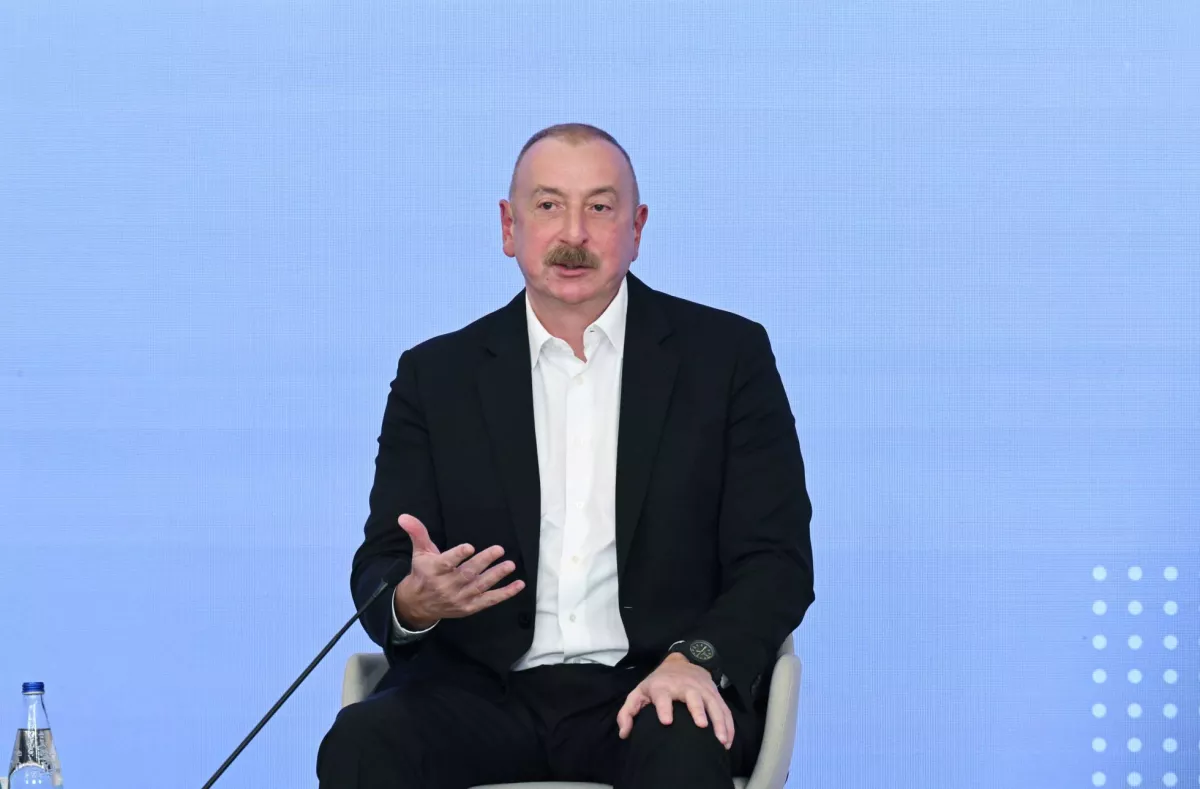
Another important aspect highlighted by the Azerbaijani leader was the Republican candidate’s position on traditional values. At the same time, he noted that during Trump’s presidency, there was very fruitful cooperation between Baku and Washington, based on mutual respect and recognition of each other’s support in various areas.
It is fair to say that President Aliyev’s statements speak for themselves, reflecting, as always, his brilliant assessment of global events within a geopolitical context.
Now let us turn to October 2025, listening to Azerbaijan’s Presidential Assistant Hikmet Hajiyev, who, on the last day of the month, confirmed the creation of a working group between Baku and Washington. As he specified, the U.S. State Department has established a working group related to the U.S.–Azerbaijan strategic partnership (a corresponding group has also been established on the Azerbaijani side).
Unique, isn’t it? The development of U.S.–Azerbaijan relations in the manner described above occurred in less than a year following Donald Trump’s inauguration. This clearly demonstrates how methodically President Ilham Aliyev conducts foreign policy: precise, concrete, and meticulous. This approach is evident across the full spectrum of actions taken by both Baku and Washington, confirming the White House’s intent to build a relationship with Azerbaijan in a special framework.
For some of the external biased forces, this may come as a surprise. But, as we have said, the current outcome reflects the predictability of official Baku, including the consistency between President Aliyev’s words and actions. For those who might doubt this, we would suggest reviewing the history of U.S.–Azerbaijan relations over the past year and a half. To make this easier, we will highlight certain episodes in this direction.
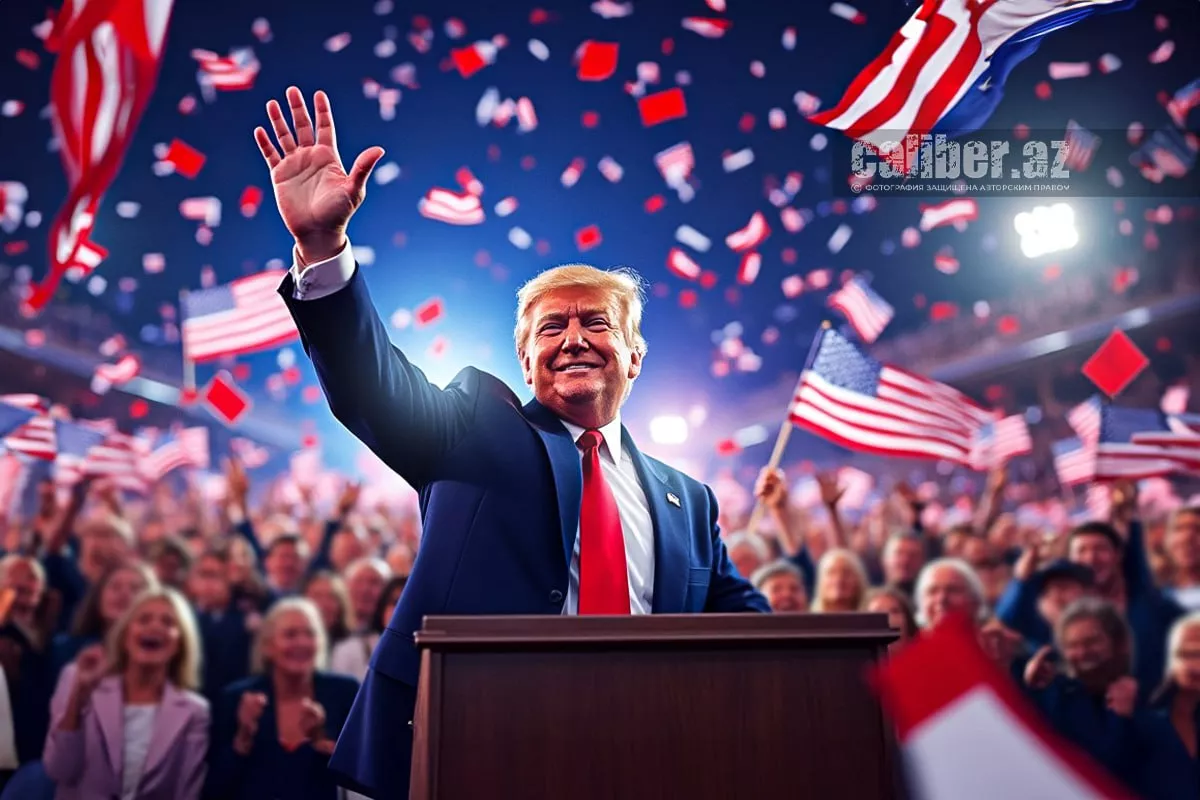
To begin, it is worth recalling that following Trump’s election victory, the Azerbaijani president, in his telephone congratulations, emphasised how the actions of the 47th U.S. president would play an important role in ensuring global security. At the same time, he expressed hope for joint efforts by both sides to advance bilateral relations. In his reply, Trump highlighted the significance of what Ilham Aliyev had conveyed in the context of developing cooperation.
This was followed by a period of congratulations from the White House to the Azerbaijani leader. In his March message to the Azerbaijani president on the occasion of the Novruz holiday, Trump, noting the long history of cooperation, expressed hope for joint steps in the near future towards significant achievements. In his congratulatory letter to President Aliyev on Independence Day in May, Trump underscored how much Washington values its relationship with Baku, including in advancing energy security. In this context, the White House expressed its hope for deepening the partnership in the coming years and decades.
Next came the signing, on August 8 in Washington, of the Joint Declaration by the presidents of Azerbaijan and the United States, as well as by Armenian Prime Minister Nikol Pashinyan. Among other significant issues, the declaration confirmed the importance of opening communications between the two countries, including ensuring unobstructed connections between mainland Azerbaijan and the Nakhchivan Autonomous Republic.
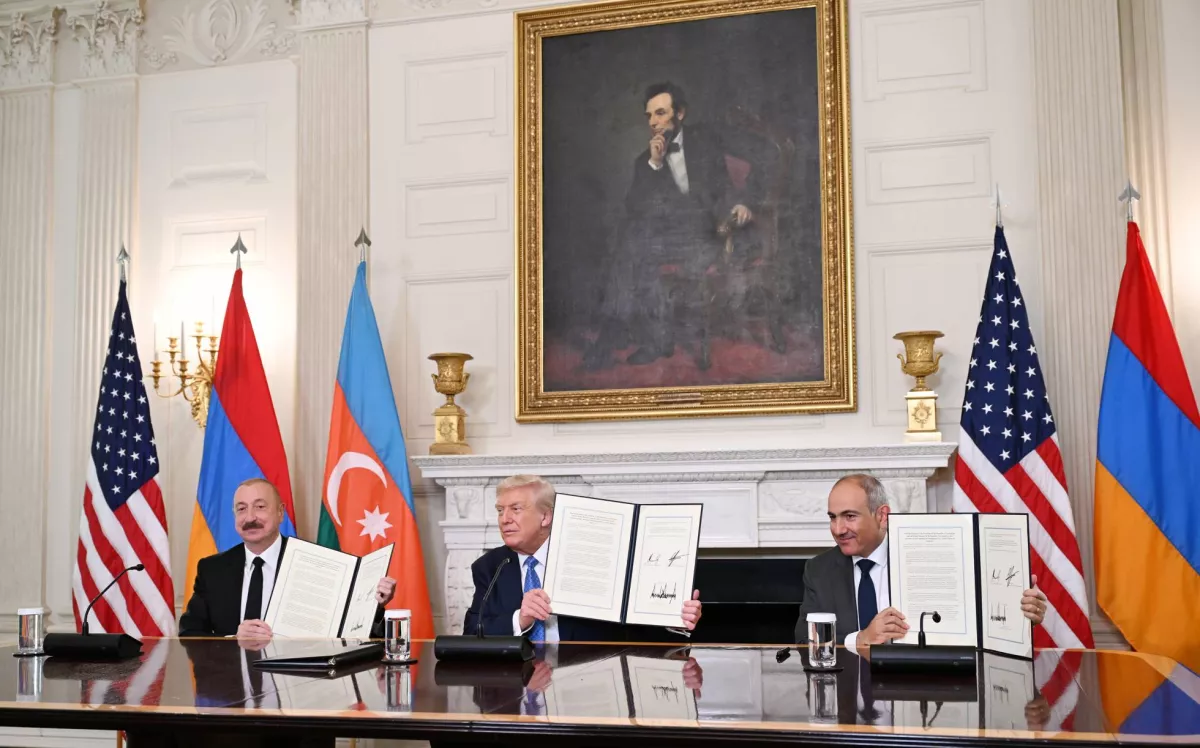
On the same day, emphasising the opening of a new chapter in cooperation and strategic partnership in U.S.–Azerbaijan relations, Ilham Aliyev described the event as a very important matter from the perspective of protecting Azerbaijan’s national interests.
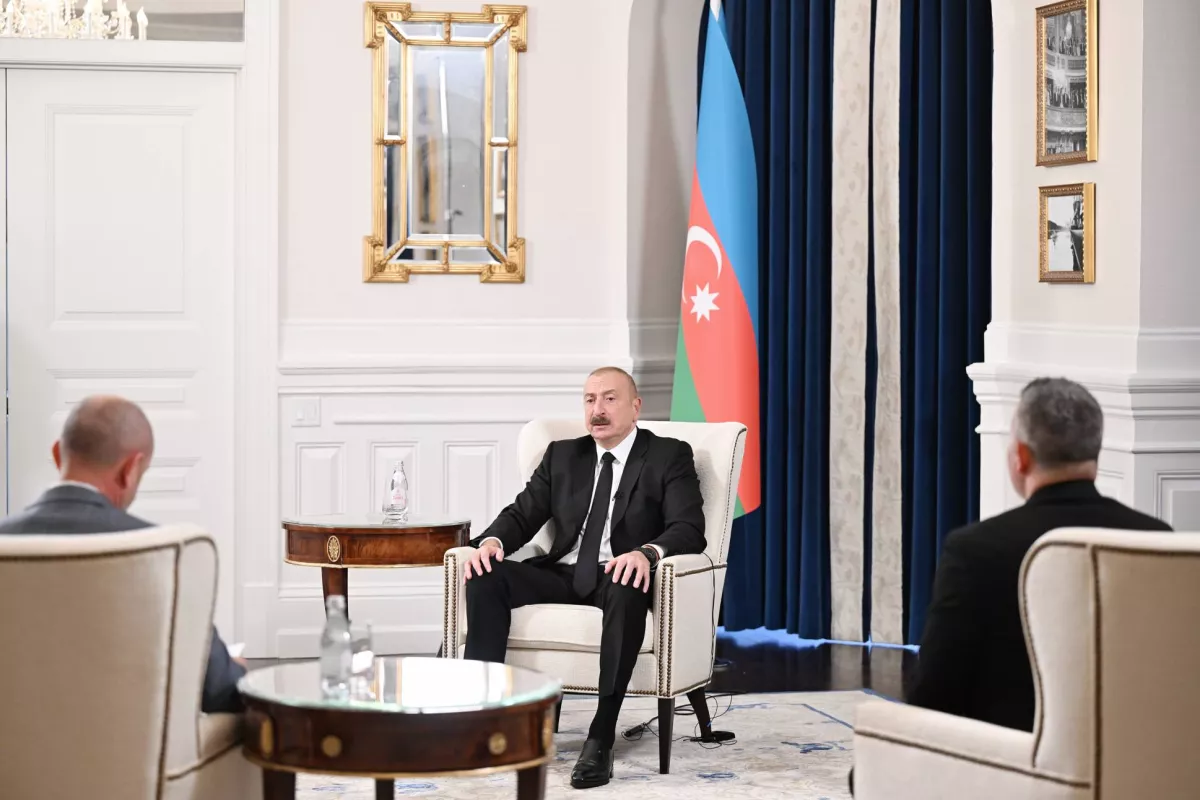
Focusing on the significance of the document establishing the Strategic Working Group for preparing the Charter on Strategic Partnership between the two countries, the head of state emphasised that the agreements cover virtually all areas, including energy, transport, security, the defence industry, and more. Given the vast opportunities opening up for Azerbaijan, President Aliyev stated his unwillingness to waste time, particularly in light of the four years lost during the Biden administration.
This is all the more relevant considering the widely visible positive attitude of Trump and his team towards Azerbaijan, which is a very important factor. As President Aliyev noted, the U.S. president fully understands Baku’s geopolitical significance. Moreover, personal contacts will play a special role in the relationship.
In a subsequent interview with Al-Arabiya, the President of Azerbaijan described Trump as a courageous man and a great leader, noting that “he treats me as a friend.” This is particularly noteworthy, given that Trump himself has referred to our head of state as a great leader. This was one of the reasons our president, along with the President of Egypt, was invited by Trump to the recent Peace Summit with a focus on the Middle East.
No matter the opposition from some quarters, the relationship between the leaders of Azerbaijan and the U.S. can truly be described as friendly. This, with rare exceptions, stands in sharp contrast to Trump’s relationships with leaders of countries within the transatlantic sphere—and beyond.
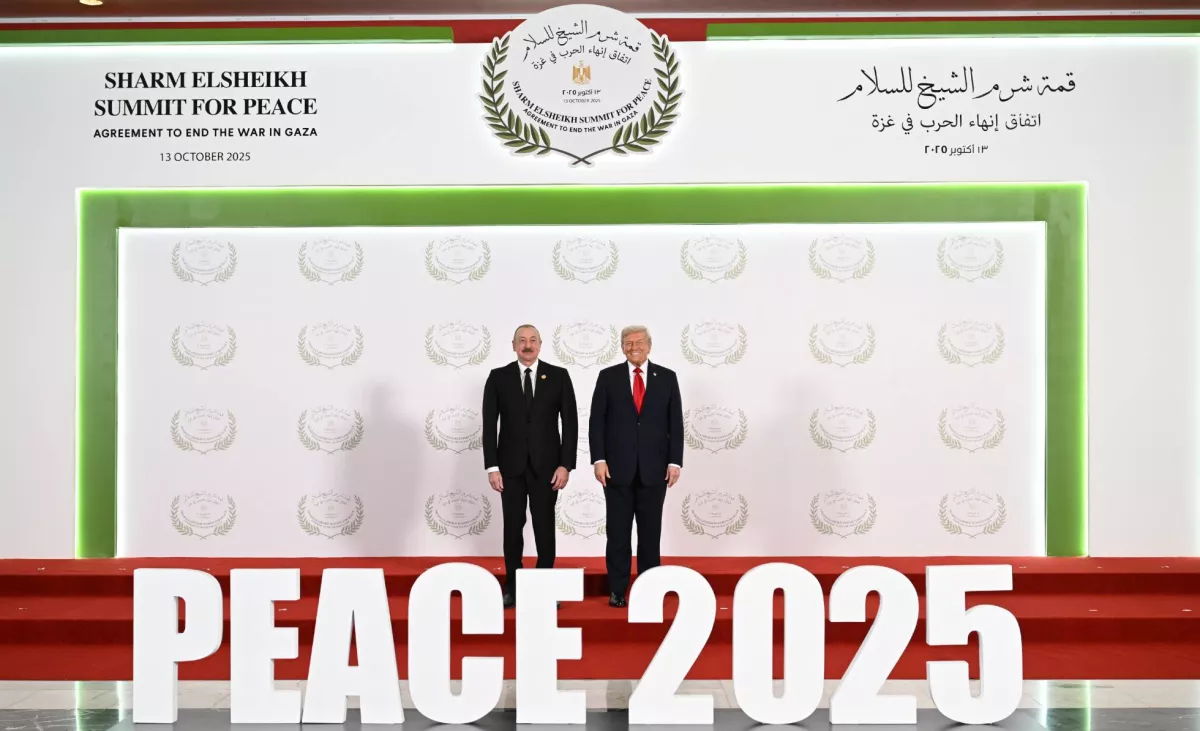
Surely, even the fragments outlined above confirm the special nature of U.S.–Azerbaijan understanding. This, incidentally, once again proves that the role of individual personalities in history has not disappeared—just as personal relationships between world leaders remain significant.
Against the backdrop of continuing political and economic turbulence, manifesting also through ongoing bloodshed in various regions around the world, the relationship between Washington and Baku stands out as an example of fostering mutual understanding based on respect for each party’s position. This is clearly reinforced by the personal rapport between the two leaders. The sincerity and prospects of this relationship are evident even from individual moments captured during meetings between Donald Trump and Ilham Aliyev at various international forums.
Therefore, the emphasis placed yesterday by Hikmet Hajiyev is entirely natural. U.S.–Azerbaijan relations have entered a new phase, and the pace of mutual engagement of all kinds is truly remarkable!








